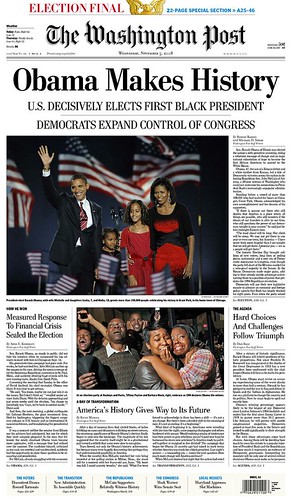Back in the 80’s my husband
and I belonged to a Pentecostal Christian church. The small close-knit group of believers in
which we found ourselves appealed to two lapsed Catholics who had ultimately
felt too far removed from God and other church-goers in the vast dogmatic ocean
that is the Catholic Church. We wanted “personal”
relationships—with God and with the folks sitting in the pew next to us. In our tiny church that met in a schoolhouse,
we found those personal relationships.
In spades. At one point during
our five-year association with that group, we attended or hosted some sort of
church-related function—from prayer groups to song service practice to building
committee—every night of the week. And
twice on Sundays.
This was the time of my life
when I came as close to being a genuine, card-carrying member of a “community”
as I had ever been (or ever would be again.) But even so, I never felt quite on
the same page as everybody else. For one
thing, gender roles in that community were very cut and dried and very
specific. The men went to work, provided
for the family and held the leadership roles in the church. The women stayed at home, had babies, and
served the men.
My upbringing had been too
androgynous to relate to this. We were
not raised to hold down the fort while the men went out into the big world and
made the living. I felt a bit out of
step with the women of our little church, since I worked full time and did not
have kids, and stay-at-home mother-hood seemed to be a woman’s highest
call.
But I could live with
that…and I did, for several years. The
part I could not live with—could never accept—was the politics.
I came of age during the
decidedly liberal 60’s and 70’s. I was
raised Catholic during the time of Vatican II, when forward-thinking hierarchy attempted
to make the Church more relevant to the 20th century. So I never had a problem being
a liberal Catholic. Catholics back
then—at least, the Catholics I associated with—assumed a separation of church
and state. Things like birth control and
abortion were supposed to be sins, but if you didn’t spend your whole life
having gratuitous sex and aborting the consequences, you were free to embrace
liberal ideals. You didn’t think twice
about it. At least, I didn’t.
But the Pentecostal “personal
relationship with God and everybody” church was a whole different ball of
wax. Church and life were
inseparable. You were a Christian
24/7/365. Not only were you expected to
toe the biblical line when it came to your own life—every minute of every day;
but you were charged with making sure this same code of behavior was followed
by everyone. There were causes you were
expected to embrace; candidates you were expected to support. The 80’s were the infancy of what has become
the 21st century’s very powerful Christian Right—that political
juggernaut which brooks no argument, entertains no compromise, and is bent on
taking the nation, culturally, back to the days when (white) men were favored
by God and everyone else knew their place.
That was, in the end, what made me walk away (run away screaming?) from fundamentalist Christianity.
That was, in the end, what made me walk away (run away screaming?) from fundamentalist Christianity.
Thirty years later, I find
myself on a drastically different spiritual path. People who Knew Me When, Catholics and
Pentecostals alike, would surely believe I have gone over to the Dark
Side. You would think that, with all
those years under my belt, I could have picked a spiritual practice that does
not clash with my politics. No such
luck, I’m afraid.
Perhaps the problem is not
with my religion, but with the current condition of politics. Any politics—left wing, right wing, and all
the pinfeathers in between. Because all
politics is about one thing: M.O.N.E.Y.
If you don’t have it, you can’t win.
Political campaigns, which were once (arguably) sales pitches for competing
ideologies have devolved into contests to see which side can raise more money
with which to bury the other in negative propaganda. The sums of money apparently necessary for
this task are nothing less than astonishing:
In July, it was reported that the Obama Campaign had raised over
$400,000,000, and Romney was not far behind.
With less than one half of one percent of that amount, I would be set
for life. And then some.
Every move, every endorsement
or condemnation, every opinion expressed by a candidate or on a candidate’s
behalf is carefully calculated for its potential for capital return. No matter how morally pure or logically
responsible a stand on an issue might be, if it has a chance of causing a big
donor to tie the purse strings, it doesn’t fly.
I don’t delude myself into thinking this is not true for both
parties. But it’s particularly galling that
those who share one’s personal ideology need to participate in this charade
simply to get a foot in the door or risk utter legislative impotency.
Here is where my religion, such as it is, begins to chafe against my politics. My chosen spiritual path has impressed upon me that one of the most dangerous ills of our society is our addiction to excess. I have major moral objections to the multi-million-dollar war-chest mentality. Still, I understand that it takes tremendous amounts of money, applied to outrageously objectionable media hype, to get elected to political office these days. Do I set my principles aside and dig into my pockets in order to maximize the potential for the kind of legislative leadership I believe is good and necessary? Do we all have to dance with the devil on the off chance that our candidate might be a factor for positive change if he/she is elected?
And then there is the question of the economic recovery.
Here is where my religion, such as it is, begins to chafe against my politics. My chosen spiritual path has impressed upon me that one of the most dangerous ills of our society is our addiction to excess. I have major moral objections to the multi-million-dollar war-chest mentality. Still, I understand that it takes tremendous amounts of money, applied to outrageously objectionable media hype, to get elected to political office these days. Do I set my principles aside and dig into my pockets in order to maximize the potential for the kind of legislative leadership I believe is good and necessary? Do we all have to dance with the devil on the off chance that our candidate might be a factor for positive change if he/she is elected?
And then there is the question of the economic recovery.
I am incensed that my personal economic progress, and that of just about every other middle class American, was derailed by eight years of the Bush Administration’s pro-rich, pro-big-business, pro-anything that compiles obscene amounts of money and funnels it into the pockets of those who already have more than enough agenda. I look at my life, and I understand that not only am I not nearly as well off as my middle-class parents were when they were my age, I’m not as well off as I was twenty or even thirty years ago.
Why is it that during the
Carter Administration, which history argues was an economic train-wreck, my
young husband and I were able to buy a house and had two new cars sitting in the
driveway? And today, while our income is
almost four times what it was back then, we couldn’t sell our house or buy a
new one if our lives depended on it, and the thought of purchasing a new vehicle is nowhere near the realm of
possibility. This is nobody’s idea of
fair or okay or how the American Dream was supposed to pan out for Mr. and Mrs.
Baby Boomer Joe Blow.
And yet, there’s that voice
in the back of my head, murmuring that though I may not have what I thought I
was supposed to have…I have enough. We
have a roof over our heads, food on the table, vehicles to get us where we need
to go, and even some toys and frivolities.
We are not living a “bare necessities” life by any means. So while I’m mad as hell at the guys who
think it’s their right to have it all and then some, and have bought the means
to ensure that the laws of the land pretty much let them go ahead and do that
unimpeded, I can’t help but think that, on some level, I’m itching to fight
them for things I don’t need. Do I
really want to arm-wrestle them for the right to be…like them?
Still, there are battles that
need to be fought—for those who were not as fortunate as we were during the
economic downturn, and for myself and the rest of my economic “class.” (Let no one say there is not a class war
going on, and it is not the rich who are under attack.) We all need decent housing, a safe food
supply and quality health care. These
are not “entitlements.” They are basic
rights provided by a moral society for each of its members—from the greatest to
the least. If the rich and policies that
favor the rich have turned these basic rights into commodities that only money
can buy, then we need to reform our government and re-assert our rights.
I do, I really do, want to
“live intentionally” and “walk the walk.” But it is necessary to work within
the established (heinous) system if there is any hope at all of changing it
with anything short of an “Arab Spring” style revolution. We have to play the game in order to destroy
it. As such, there is as much potential
for it to destroy us as the other way around.
But are we not morally bound to take that risk?



















There's a scene at the beginning of a Blue Bloods episode. The commissioner is looking at an expense report including postage, over 15,000 and going "that can't be right, I paid less than that for my first house."
ReplyDeleteSome of the VAtican II theology survives in Latin America but you have to search for it. I've seen comments that we built the greatest economy in the world and didn't have enought MBA's to fill a sail boat. Now we have MBA's cup the wazzoo and the economy is in the crapper. Wonder if there's a connection.